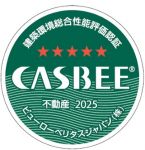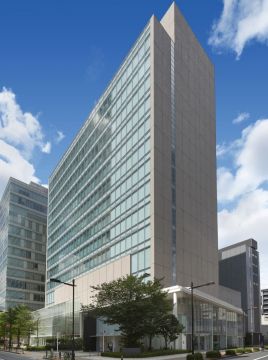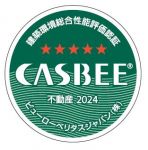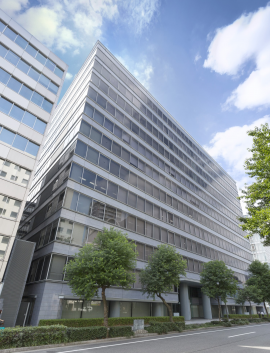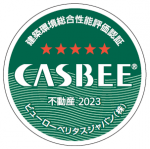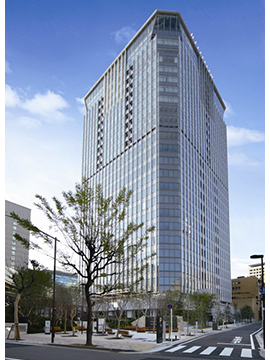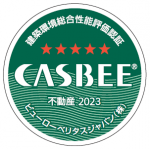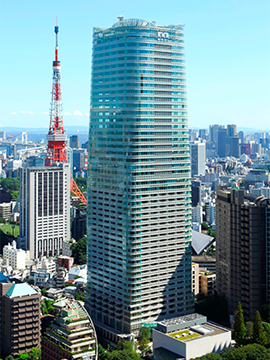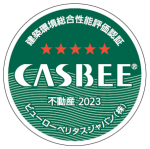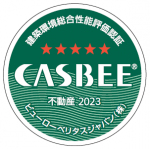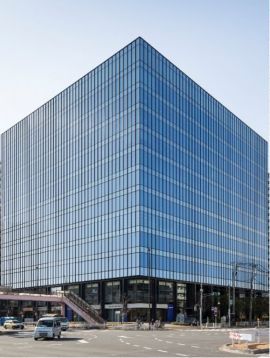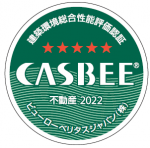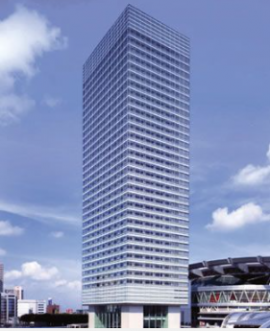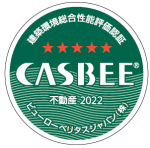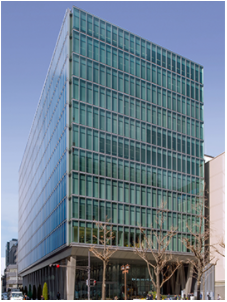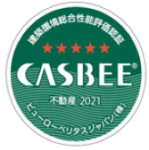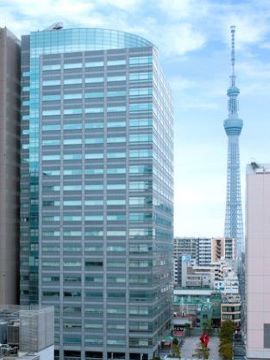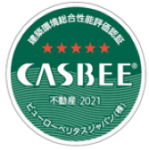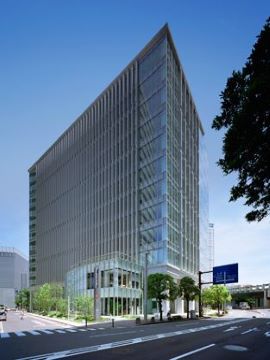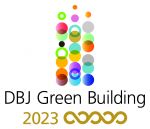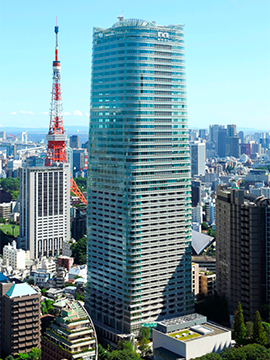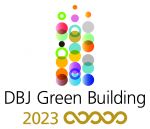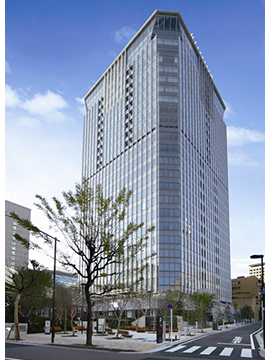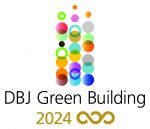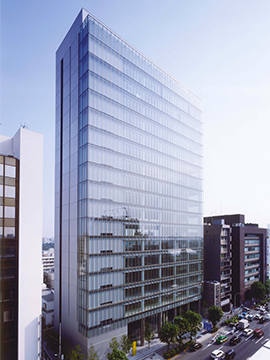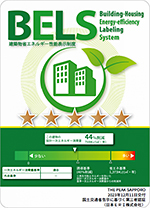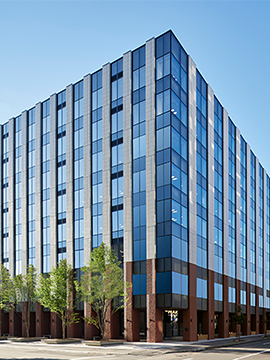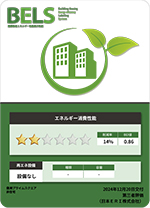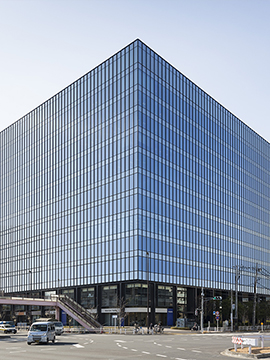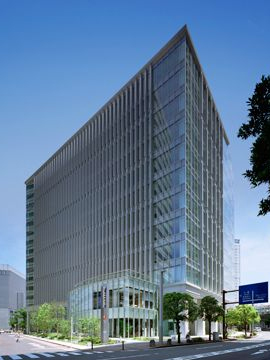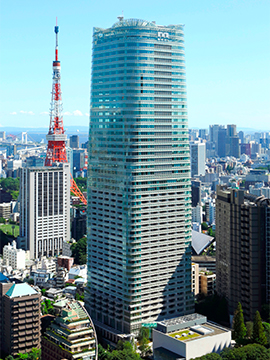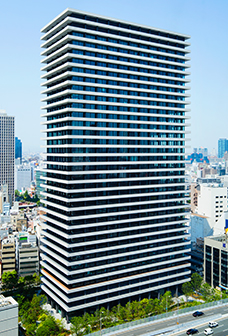External Certifications
- Home
- ESG Initiatives
- External Certifications
GRESB Assessment
GRESB is an annual benchmarking assessment to measure ESG (Environmental, Social and Governance) integration of real estate companies and funds, as well as the name of organization which runs the assessment. It was founded in 2009 by a group of major European pension funds who played leading roles in launching Principles for Responsible Investment (PRI).
Currently, approximately 150 GRESB Investor Members use GRESB data in the selection of investment targets and in the dialog with investment destinations, and several institutions from Japan including Government Pension Investment Fund (GPIF) utilize GRESB Assessment results. In 2025, 2,382 listed or private real estate companies/funds participated in GRESB Real Estate Assessment.
In the 2025 GRESB Real Estate Assessment, GOR received a “5 Stars” in GRESB Rating for the sixth consecutive year, which is based on GRESB Overall Score and its quintile position relative to global participants. It also won a “Green Star” designation for the seventh consecutive year by achieving high performance both in “Management Component” that evaluates policies and organizational structure for ESG promotion, and “Performance Component” that assesses environmental performance and tenant engagement of properties owned.
GOR also received the highest “A Level” for the GRESB Public Disclosure, which assess the width of ESG disclosure, for the sixth consecutive year.

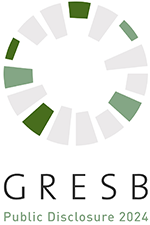
Number of Properties That Have Received Environmental Certification and Ratio of Such Properties within the Portfolio
| No. of buildings | Total floor area(㎡)*2 | Ratio within portfolio(%) | |
|---|---|---|---|
| Buildings that have received environmental certification*1 | 13 | 128,041.05 | 96.1% |
| CASBEE Real Estate Certification | 11 | 114,722.38 | 86.1% |
| DBJ Green Building Certification | 3 | 24,969.34 | 18.7% |
| BELS Certification | 3 | 37,051.48 | 27.8% |
- A building that has received multiple assessments and certifications is counted as a single building.
- Floor area indicates total leasable area that is the ownership interest of GOR.
CASBEE for Real Estate
CASBEE for Real Estate (formerly: CASBEE for Market Promotion) was developed with an aim of allowing the utilization of the results of CASBEE environmental assessments of buildings in the appraisal of real estate, and thus assessment standards were established for items closely related to real estate appraisal so that those engaged in real estate development and transactions could utilize CASBEE.
Assessment items are strictly selected to enhance replaceability with those for BREEAM, LEED, etc. In addition, although the assessments are made based on a point-addition system, the results are indicated in a four-level ranking system of “S”, “A”, “B+” and “B” as well as the number of stars based on the score.
★★★★★
Rank S
DBJ Green Building Certification
DBJ Green Building Certification is a certification system established by Development Bank of Japan Inc. (“DBJ”) in April 2011, designed to connect real estate operators and financial institutions/investors by evaluating properties with high environmental and social awareness (“Green Buildings”).
It supports the ESG initiatives of existing buildings by comprehensively evaluating environmental performance of the buildings in addition to their consideration for social needs of various stakeholders, among other factors.
The certifications are given in five evaluation rankings of “★★★★★”, “★★★★”, “★★★”, “★★” and “★”.
★★★★★
Properties with the best class environmental & social awareness
★★★
Properties with excellent environmental & social awareness
BELS (Building-Housing Energy-Efficiency Labeling System)
BELS is provided under a public guideline, which evaluates the energy conservation performance of buildings, established by the Ministry of Land, Infrastructure, Transport and Tourism. Third parties evaluate the performance of the buildings and the evaluation result is shown by the number of stars assigned, It is displayed in 7 levels (★★★★★★ - no stars)*.
- Ratings for certifications applied for prior to April 1, 2024 are on a 5-point scale (★★★★★ - ★).
JHEP accreditation [ARK Hills Sengokuyama Mori Tower]
Japan Habitat Evaluation and Certification Program (JHEP) is a measurement model that was built by the Ecosystem Conservation Society-Japan based on an environmental assessment method of Habitat Evaluation Procedure (HEP), which quantitatively assess natural environment from the perspective of habitat, originally developed by the Interior Department of the U.S.A. in the 1980s. Ecosystem Conservation Society-Japan has made some modifications to enable the evaluation of companies’ efforts, etc. in Japan. It aims to spread effective initiatives by quantitatively assessing efforts on conservation and restoration of biodiversity and awarding ranked certifications.
Sengokuyama : The property received Japan’s first AAA-rank certification with greening efforts that consider biodiversity.
(Date of Issue : 15 September 2012 Date of Renewal : 15 September 2022)
Shin‐Daibiru Building: The property received Western Japan's first AAA-rank certification due to its installation of “Dojima-no-mori”.
(Date of Issue : 16 March 2015 Date of Renewal : 16 March 2025)
SEGES certification (The Urban Oasis) [Shin‐Daibiru Building]
SEGES is a system for evaluating the creation of high quality green spaces and the implementation of green initiatives by companies, etc. It certifies green spaces that contribute to society and the environment and that are maintained in good condition. The Urban Oasis certification system recognizes efforts to provide comfortable, safe green spaces in urban areas. It evaluates the functions of green spaces that are created as urban amenities. It does not have any area requirements, but is instead focused on green spaces where people can enjoy the benefits of greenery with all of their senses, such as green spaces with beautiful flowers, grasses, and scenery; shade from trees; expansive lawns; brooks, and sunny spots. It certifies high quality green spaces that serve as spaces for relaxation in urban environments.
TCFD (Task Force on Climate-related Financial Disclosures)
GAR expressed its support for the TCFD recommendations, which is an initiative requesting the disclosure of information on climate change, in May 2021, and joined the “TCFD Consortium”
- The TCFD Consortium was established as a Japanese forum for companies and financial institutions, etc. supporting the TCFD recommendations in order to have discussions on effective disclosure and engagement to link disclosed information to appropriate investment decisions implemented by financial institutions and other organizations.

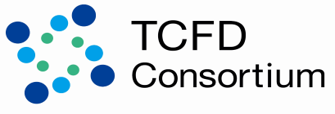
SBTi(Science Based Targets Initiative)
The SBTi is a joint initiative between CDP, the United Nations Global Compact (UNGC),World Resources Institute (WRI), and the World Wide Fund for Nature (WWF), established in 2015.The SBTi validates and certifies GHG emissions reduction targets set by companies that are consists with the level required by the Paris Agreement (aiming to hold the global average temperature increase to a level well below 2°C above pre-industrial levels and pursue efforts to limit the temperature increase to 1.5°C above pre-industrial levels).
GOR established new GHG emissions reduction targets towards the achievement of the 2050 net-zero targets (42% reduction by, Realization of net zero emissions 2050), and as those targets are deemed to be consistent with the level fiscal 2030 required by the Paris Agreement and based on scientific grounds, GOR acquired certification from the SBTi in March 2024.
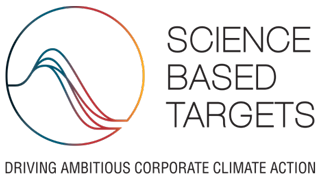
Principles for Financial Action for the 21st Century (PFA21)
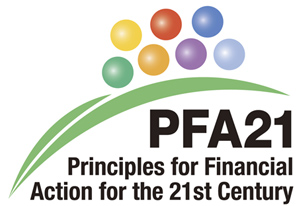
- The PFA 21 is action guidelines for financial institutions towards shaping a sustainable society.
- With the Ministry of the Environment as the secretariat, this set of Principles was drawn up in October 2011 involving a wide range of members including financial holding companies, banks, trust banks, cooperative financial institutions, securities companies, insurance companies, and asset management companies. Signatory institutions are required to implement activities based on the seven principles to the extent possible in light of their business context.
- GAR became a signatory in March 2020, supporting the basic thinking behind the PFA 21.
〈The Principles〉
- [Principle 1] Basic stance
- We will recognize our roles and responsibilities as financial institutions and take the initiative in practicing utmost efforts throughout each business with the aim of creating positive impacts on the environment, society and economy and alleviating negative impacts towards shaping a sustainable society.
- [Principle 2] Contribution to a sustainable global society
- We will lead the formation of a sustainable global society through the development and provision of financial products and services contributing to the creation and development of industries and businesses through innovation towards the steady and fair transition of society.
- [Principle 3] Contribution to the formation of a sustainable local community
- We will support the resolution of issues in terms of environment, society and economy based on regional characteristics and take the lead in forming a sustainable local community through the improvement of inclusiveness and resilience of local communities.
- [Principle 4] Personnel training
- We will train personnel who can independently consider environmental and social issues and take actions by recognizing the importance of human capital at financial institutions.
- [Principle 5] Cooperation with diverse stakeholders
- In the formation of a sustainable society, we will recognize the importance of cooperation with diverse stakeholders including financial institutions and will not only participate in its activities but also take a proactive role.
- [Principle 6] Establishment of sustainable supply chains
- We will proactively tackle environmental issues such as climate change and biodiversity and social issues including human rights as well as intend to establish sustainable supply chains through constructive engagement with customers, etc. including investees and borrowers.
- [Principle 7] Information disclosure
- We will widely disclose information on initiatives to stakeholders as well as make constant improvements based on domestic and overseas trends and the disclosure framework while recognizing that activities for enhancing social sustainability are a management issue.
(Translated by GAR)
